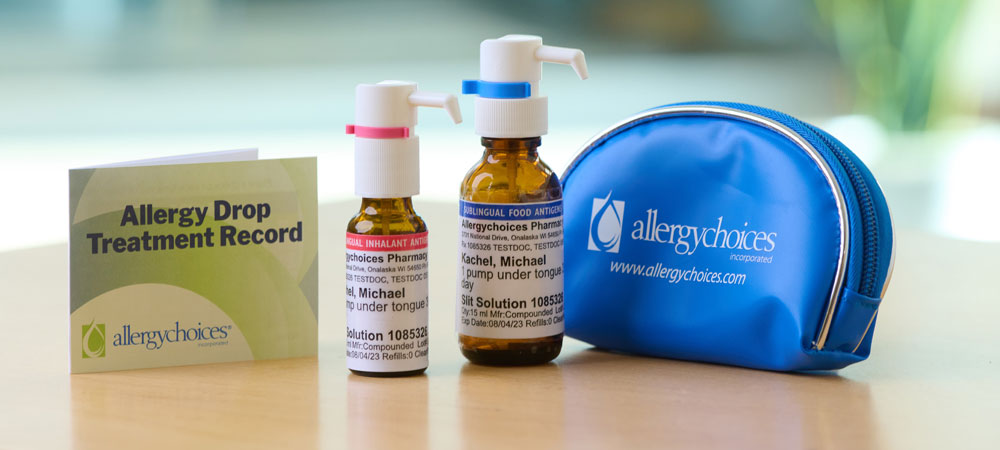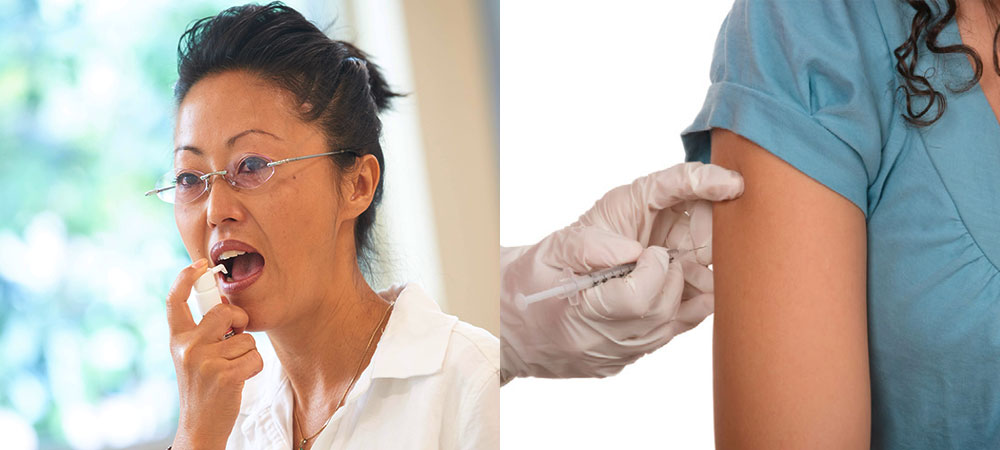Allergy Drops
Signs It’s Time to Break Up with Your Allergist
Allergy treatment isn’t one-size-fits-all, and if you’ve been sticking with a plan that doesn’t seem to be working, it’s okay to start asking questions. If you’re not getting the relief or support you need, it might be time to reassess if it’s time to break up with your allergist and find another immunotherapy option –…
Learn how to manage multiple allergies and comorbiditiesWhat Can I Do to Manage Multiple Allergies and Comorbidities?
Our last two blogs dug into allergy comorbidities and how allergies can impact autoimmune diseases. The inflammation and immune response that occurs with an allergic reaction can cause a host of issues in the body – exacerbating allergy-related conditions and some autoimmune diseases. What can you do to feel better? There are two routes of…
Learn how to manage multiple allergies and comorbiditiesCan Allergies Worsen Chronic Autoimmune Disease?
What role do allergies play in autoimmune conditions? Can allergies actually worsen other chronic conditions? Read more about their parallel connection, and how treating allergy may help reduce flare ups from autoimmune diseases. Relation between autoimmune conditions and allergy To understand how the two are connected, it helps to understand what allergies and autoimmune disease…
Learn about the link between Allergies and Autoimmune DiseasesWhat are Allergy Comorbidities and How Do They Relate?
As if allergies aren’t enough to deal with, many people experience related conditions at the same time, and the two can impact one another. These are known as allergy comorbidities, and they can range from annoying to dangerous, depending on the severity of the allergy. What is a comorbidity? A comorbidity is the simultaneous presence…
Learn all about allergy comorbidities...How Can I Reduce My Allergies Naturally?
In 2024, people are questioning all the products, supplements, and medications they use daily, and for good reason. There are apps to scan skin care products for ingredients, labels claiming “sulfate free,” and ever-changing food ingredient labels. It’s smart to examine the medications you take every day, or every season, and see if there are…
Learn how to reduce your allergies natually...Can allergy drops make you sleepy?
Allergy drop immunotherapy does not make you sleepy. Some allergy symptom-relievers, like Benadryl, list drowsiness as a side effect, so you need to be thoughtful about when you take them. But, disease-modifying treatment like allergy drops, or sublingual immunotherapy, does not – because the ingredients are simple. The only ingredients in allergy drops following the…
Learn about side effects of allergy drops...Are Allergy Drops Better Than Allergy Shots?
Research shows that both subcutaneous immunotherapy (allergy shots) and sublingual immunotherapy (allergy drops) can treat the root cause of allergy. Though, there are a few elements that patients can consider that may make allergy drops a better option for them. Safety and personalization Allergy drops following The La Crosse Method™ Protocol have a great safety…
Learn the differences between allergy shots and allergy drops...Is Sublingual Immunotherapy Effective?
Yes! Patient studies show that allergy drops, or sublingual immunotherapy following The La Crosse Method™ Protocol, are effective in reducing — or eliminating — allergy symptoms. Sublingual immunotherapy can also be effective in treating allergy-related conditions like asthma, eczema, headaches, and other illnesses that are negatively impacted by allergy. The goal for treating environmental allergies…
Learn how effective allergy drops can be...How Often Can You Use Allergy Drops?
Allergy drops are not like other at-home allergy products like antihistamines, eye drops, and inhalers that give you a quick fix and then the benefits wear off. Allergy drop immunotherapy is a prescription therapy — a personalized, disease-modifying treatment. It’s tailored to each patient to train the body to stop reacting to problematic allergens —…
See what clinicians recommend for allergy drop dosing...What is sublingual immunotherapy?
Sublingual immunotherapy, also known as allergy drops, is a form of disease-modifying allergy treatment similar to allergy shots. Instead of a shot, sublingual immunotherapy works as a liquid drop that is placed under the tongue. Sublingual: applied under the tongue Immunotherapy: therapy that uses substances to stimulate or suppress the immune system to help the…
Learn what allergy drops are...









